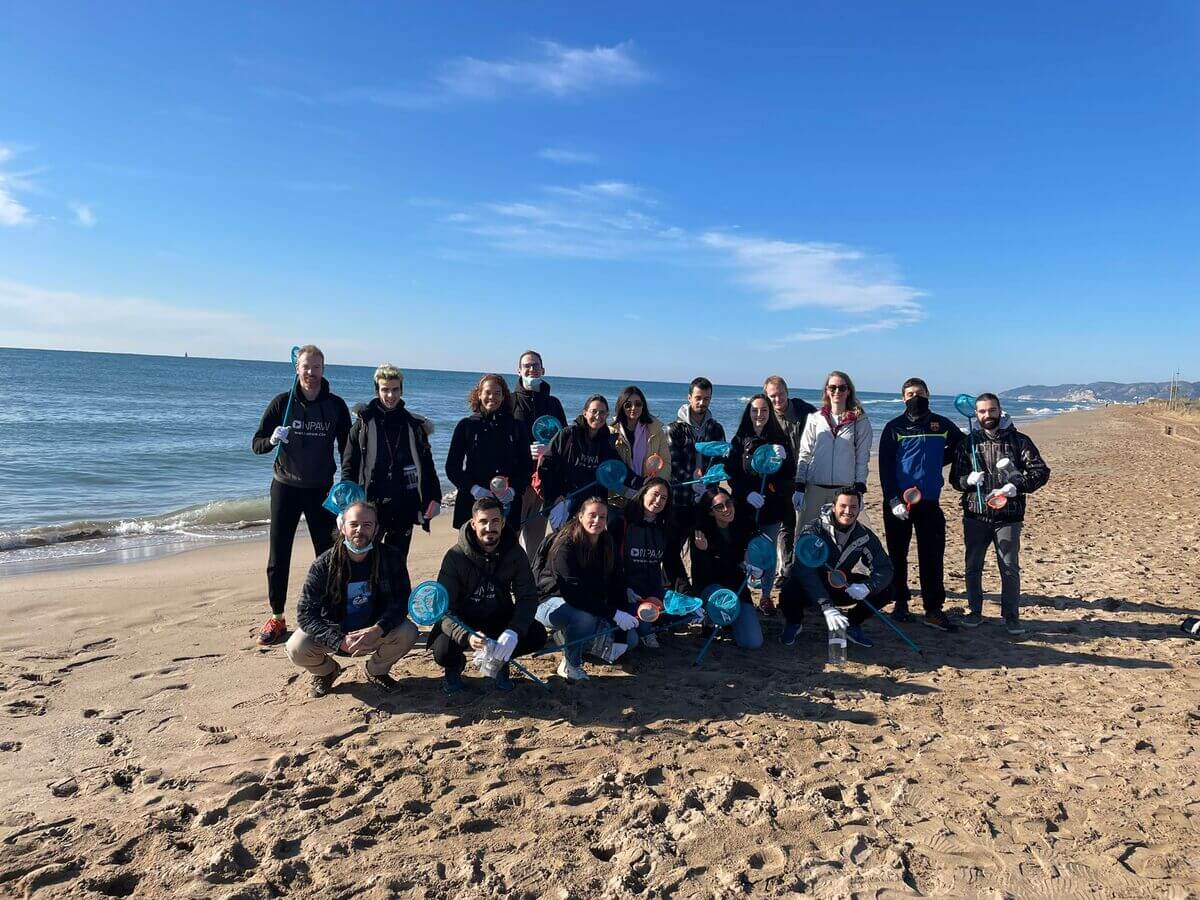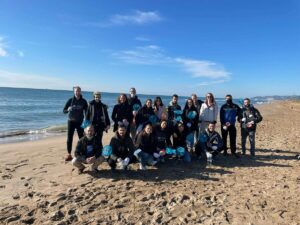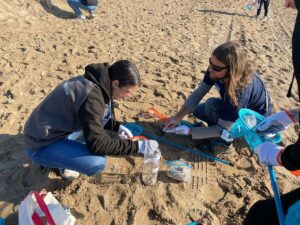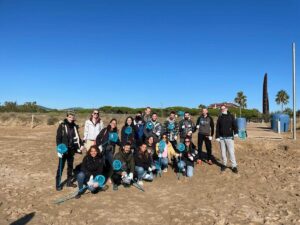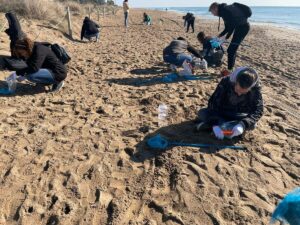Last Friday, more than 20 employees from NPAW participated in a beach cleanup in Gavà, Barcelona. Two experts from the Bandera Azul program classified the waste collected and explained its origin, its impact on marine animals and human health, and the possible solutions to the problem — individual and collective.
Bandera Azul is an environmental education program that promotes the sustainable use of the coast. More than 100 beaches and 20 marinas participate in the program in the Catalonia region, developing awareness-raising activities like the one that took place last Friday in Gavà. It’s becoming frequent that volunteers and companies participate in cleanups, as the issue of marine litter and microplastics is of growing concern.
Spain is the second European country when it comes to dumping waste into the sea, because of fishing, aquaculture, and other industries. The Mediterranean Sea contains 1.25 million fragments of waste per kilometer — that is four times the waste gathered in the so-called plastic inland in the Pacific Ocean. 95% of the waste in the Mediterranean is plastics that slowly degrade, move with sea currents, and are accumulating from the surface to the bottom of the sea. The fact that plastics become microplastics and their widespread use make the problem of marine waste worse, and it is affecting marine ecosystems and our health.
Citizen collaboration is key to solving the issue by reducing the amount of waste generated, and companies should search for alternatives to avoid marine litter.

